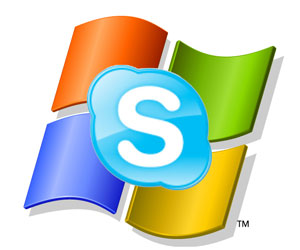
Our industry segment is abuzz with actual and wannabe industry analysts attempting to decipher the true strategy behind the Microsoft acquisition of Skype. The $8.53 billion dollars that Microsoft paid represents 17% of their available cash war chest and is the single largest acquisition they have done to date. It appears that the acquisition was a perfect storm for the Skype team: their intention of going public and the ongoing negotiations with Google and Facebook forced Microsoft to act decisively – and boldly.
The Numbers:
Post acquisition, Microsoft gets access to the estimated 700,000,000 Skype users, but only picks up $900M in annual revenue and $250M in operating income. This means that Microsoft paid roughly 9x revenue and 34x operating income – rich by either measure of valuation. However, if you figure that they also paid about $12 for each of Skype’s current users – maybe it seems more understandable. That is, until you figure that the ratio of users to paying customers yields a “cost per customer” in the $1000 range. In any case, it seems it will be difficult for this deal to pay for itself in a reasonable period of time.
What’s Next:
What are the implications for our industry from this mega-merger and Microsoft’s willingness to plop down $8.5B (cash mind you) for Skype? For me, it’s affirmation that the pace of disruption in the communications space is accelerating. It’s an endorsement that the future of communications is truly unified. Skype integration into Windows desktop applications and mobile devices, coupled with the momentum established by Apple’s Facetime application, will accelerate the use of video communications into our daily interactions. It’s an acceleration of the migration to Voice over IP (VoIP) as the primary transport mechanism for voice transmissions – which is already well down the adoption curve with enterprises and early-adopter consumers. As an example, televisions connected to the Internet and replacing the ‘Ma Bell’ phones as the primary means of communicating to family members may well be just around the corner.
Is the acquisition good for Microsoft? Notwithstanding the financial risks involved, probably. The ability to integrate Skype into their consumer- level products holds promise in a number of areas, such as Microsoft’s gaming business. However, what of the potential benefits resulting from plans for Skype integration into Microsoft’s business-class communication products, such as Lync? That remains a mystery, and calls into question the level of commitment that Microsoft will make to open standards and to widespread integration. Multi-vendor integration is a great idea for the proliferation of Skype – but a difficult decision to embrace when many of those vendors compete with Microsoft. And in the IP communications arena, many of those vendors also have larger user communities than Microsoft.
In the end…
Is the acquisition good for Skype? Given the valuation, it’s certainly good for the Skype shareholders. But what about the service itself? In a word, no. History suggests that Microsoft’s tendency towards notoriously proprietary tactics will slow the development of Skype as a business tool. Will Microsoft wall-off Skype from competing products, completely? Or, at a bare minimum will Microsoft ensure their products work much better with Skype than those from competitors? Time will tell.
This transaction has attracted speculation from around the globe regarding the future of Skype, Microsoft, Google, Facebook, incumbent phone companies, VoIP, video communications, Apple, the Iphone, Andriod, and I’m sure even pork belly futures. Regardless of your view on how the merger will ultimately shake out, it’s hard to deny at least this one fact: disruptive communications companies and technologies are changing the world at a rapid pace – and in this case, they are generating gigantic value for their shareholders in the process.

Comentarios
Publicar un comentario